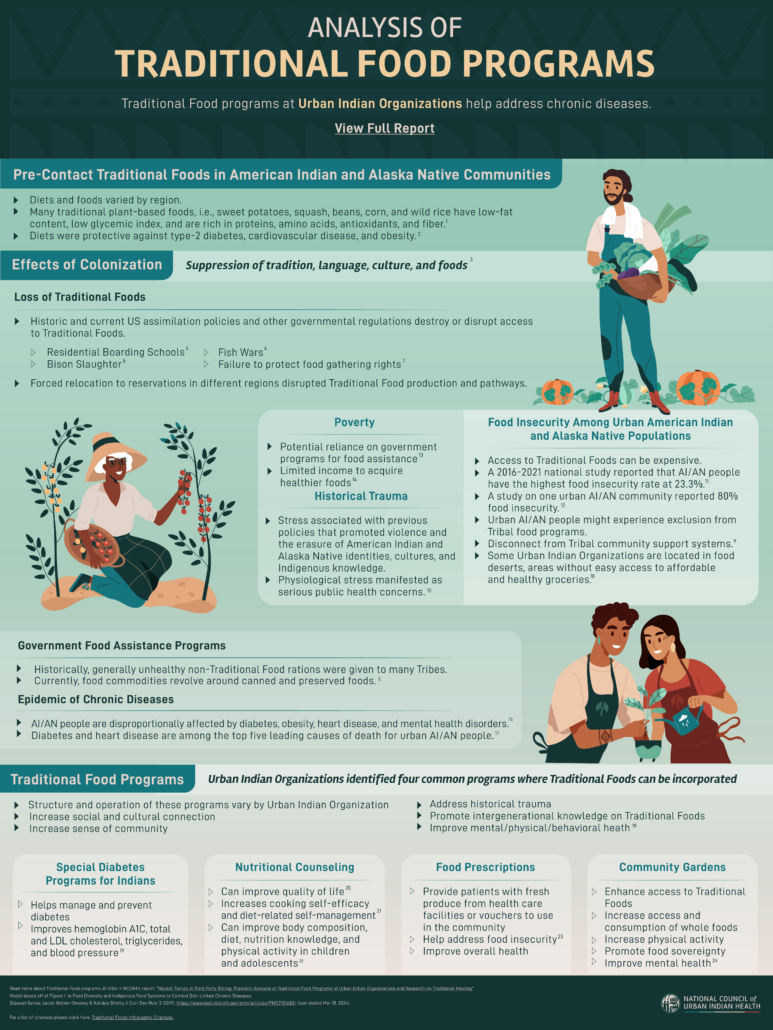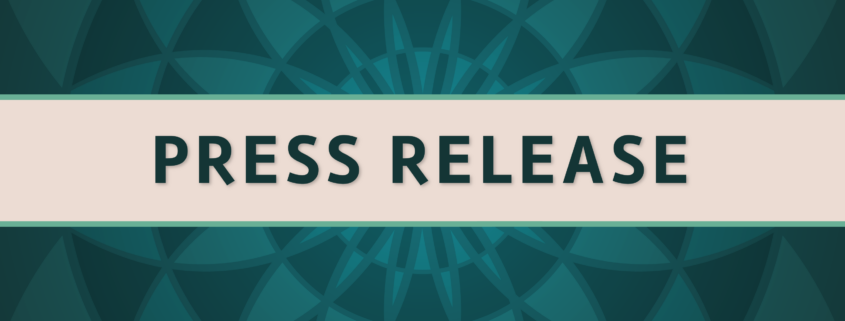PRESS RELEASE: NCUIH Report Finds High Demand for Traditional Food Programming Despite Funding Barrier
FOR IMMEDIATE RELEASE
WASHINGTON, D.C. (October 7, 2024) – The National Council of Urban Indian Health (NCUIH) is proud to announce the publication of its report entitled “Recent Trends in Third Party Billing: Thematic Analysis of Traditional Food Programs at Urban Indian Organizations and Research on Traditional Healing.”
This year’s report highlights the importance of Traditional Food programming at Urban Indian Organizations (UIOs) and how UIOs use Traditional Foods to address health disparities and incorporate culture and community in urban American Indian and Alaska Native communities. NCUIH interviewed seven UIOs regarding their Traditional Food programs and the challenges they face in billing Medicaid for related activities. The interviewed UIOs emphasized the importance of incorporating cultural knowledge into their offerings to revive traditional healthy eating and physical activity practices. The Traditional Food programs UIOs highlighted included the Special Diabetes Program for Indians (SDPI), community gardens, nutritional counseling, and produce/food prescription programs. Despite these efforts, UIOs expressed a pressing need for increased funding to maintain or expand these services to promote equitable access to food security programs to address the disproportionately high rates of food insecurity and associated diseases in urban American Indian and Alaska Native populations. As found in last year’s report on Traditional Healing, funding continues to be a barrier to building and sustaining programs that include Traditional Food.
Background
This report serves as an update to NCUIH’s previous reporting on recent trends in third-party billing. It specifically serves as a follow-up to last year’s report, Recent Trends in Third-Party Billing at Urban Indian Organizations: Thematic Analysis of Traditional Healing Programs at Urban Indian Organizations and Meta-Analysis of Health Outcomes. In interviews conducted with UIOs for last year’s report, many UIOs specifically highlighted their Traditional Foods programs as crucial to improving the emotional, mental, spiritual, and physical health of their urban American Indian and Alaska Native patients, utilizing food as medicine. Based on this information, this year, NCUIH’s research focused on how UIOs integrate Traditional Food programming into their service offerings and the various funding mechanisms UIOs use to support these services.
Next Steps
NCUIH continues to closely monitor how states use Section 1115 demonstration waivers to address health-related social needs (HRSNs) and explore how Medicaid reimbursement can be used as a mechanism to provide funding for culturally appropriate care, like Traditional Food programming. NCUIH continues to educate policymakers regarding the importance of Traditional Healing for American Indian and Alaska Native people in urban areas and the importance of developing reimbursement models that are culturally sensitive and appropriate.

About NCUIH
The National Council of Urban Indian Health is a national representative advocating for the 41 Urban Indian Organizations contracting with the Indian Health Service under the Indian Health Care Improvement Act. NCUIH is devoted to the support and development of quality, accessible, and culturally competent health and public health services for American Indian and Alaska Native people living in urban areas.
NCUIH respects and supports Tribal sovereignty and the unique government-to-government relationship between our Tribal Nations and the United States. NCUIH works to support those federal laws, policies, and procedures that respect and uplift Tribal sovereignty and the government-to-government relationship. NCUIH does not support any federal law, policy, or procedure that infringes upon or in any way diminishes Tribal sovereignty or the government-to-government relationship.
###
NCUIH Contact: Meredith Raimondi, Vice President of Policy and Communications, mraimondi@ncuih.org, 202-417-7781




